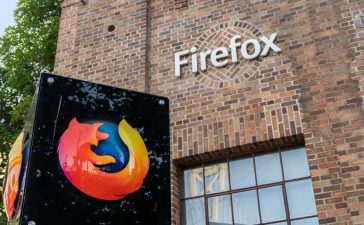
Disputes between power companies and internet providers over pole costs could mean broadband will take longer to reach West Virginians.
By Tre Spencer for Mountain State Spotlight
This story was originally published by Mountain State Spotlight. Get stories like this delivered to your email inbox once a week; sign up for the free newsletter at https://mountainstatespotlight.org/newsletter.
A billion-dollar investment to expand high-speed broadband service across West Virginia is being held up as power companies push to charge internet providers for the costs of replacing worn-out power poles despite state laws.
One in four West Virginia homes or businesses currently have cripplingly slow connection speeds or lack internet access entirely, according to state mapping.
To get high-speed broadband connections to West Virginians, telecommunications companies have run fiber cables on existing utility poles, which are primarily owned by electric companies.
By 2029, state officials plan to reach each household in West Virginia with a minimum of 100 megabits per second download and 20 megabits per second upload internet speeds using the funds.
However, the high costs utility companies are charging internet service providers to attach cables to their poles or replace poles that are in disrepair have made it difficult for the state to continue expansion, according to state officials and internet company executives.
“The pole owners are seeing billions of dollars being given away by the federal government, and they want their share of that,” said Charlie Dennie, former director of the state Office of Broadband.
The state has already received more than 20% of the $1.2 billion broadband expansion money allocated to it by the federal government. The rest of that money is contingent on a final application due April 2025, including the names of the internet service providers agreeing to provide services.
Internet service providers are saying they can’t afford the attachment fees to provide those services.
Pole attachment delays are a threat to broadband expansion, Kelly Workman, director of the state Office of Broadband, told members of the joint standing committee on technology and infrastructure during an August legislative meeting.
From deep underground to a home router, broadband expansion requires strong infrastructure
Broadband infrastructure begins deep underground with fiber optic pipes. Then, fiber cables carry data directly to your home, either underground or attached to utility poles.
In order to connect fiber cables to utility poles, the utility companies have to give the internet providers permission to attach their equipment, and the pole has to be in good condition and have ample space for the new equipment.
Annie Stroud, broadband program director at Generation WV, said attaching cables on poles can cost from $600 to more than $6,000 for utility providers who need to upgrade their poles.
Typically, poles will already have telephone, cable and power lines. Internet providers have to get approval from the utility company and pay for the engineering and research costs associated with retrofitting the pole with fiber.
However, the cost amount can vary depending on the pole’s condition, the utility company’s attachment qualifications and the labor needed. The largest expenses are for entire pole replacements.
“The poles are a major challenge,” Stroud said. “The electric utilities, who may own poles not up to code, have been able to charge the entire cost of that replacement to the telecommunications companies.”
Internet providers and power companies can’t agree on pole costs
Internet service providers say they shouldn’t bear the extra cost because they don’t own the poles. But utility companies say that responsibility should fall on the attacher.
A First Energy spokesperson said that each pole requires a space assessment before any attachment in order to adhere to federal safety guidelines like the National Electric Code.
If a taller pole is needed, that cost becomes the responsibility of the internet service provider (ISP), said spokesperson Will Boye.
“The ISP can decide if it wishes to pursue that option and fund the needed construction,” Boye said. “The ISP can also choose other routes or options that do not involve attaching to our poles.”
Another electric utility, Appalachian Power, owns poles in the state. The company also has pole attachment guidelines which have extensive rules and regulations for attachers.
A spokesperson said that they’ve received over 200,000 requests for attachments over the past three years.
“If the pole does not need to be replaced for electric service, then Appalachian Power does not bear the cost,” said spokesperson George Porter. “If a pole needs to be replaced to accommodate a new broadband attachment, then the broadband company will bear this cost.”
In late August, the Public Service Commission of West Virginia created a special task force to solve the pole attachment issues and bring together representatives from utility companies and the internet firms.
In West Virginia, the Public Service Commission – not a federal agency – regulates attachments and utilities in the state.
The task force will consider a new process requiring utilities to share pole inspection information with attachers, and requiring periodic reporting of pole attachment applications and pole compliance.
Citynet, a Bridgeport-based internet provider, is working to expand its services with federal funds and will be part of the state task force on pole attachments.
Company officials said on broadband projects in the past, they’ve been handed unfair fees by utility companies.
Jim Martin, company president, said they’ve allocated nearly $8,000 a mile for costs associated with engineering and attachment fees or about $300 a pole.
But, if the company is charged additional fees or the responsibility of replacing outdated poles, their costs would skyrocket further slowing their progress.
“We just keep fighting about who’s going to pay for it, but at the end of the day the taxpayers are going to pay for it,” he said.












